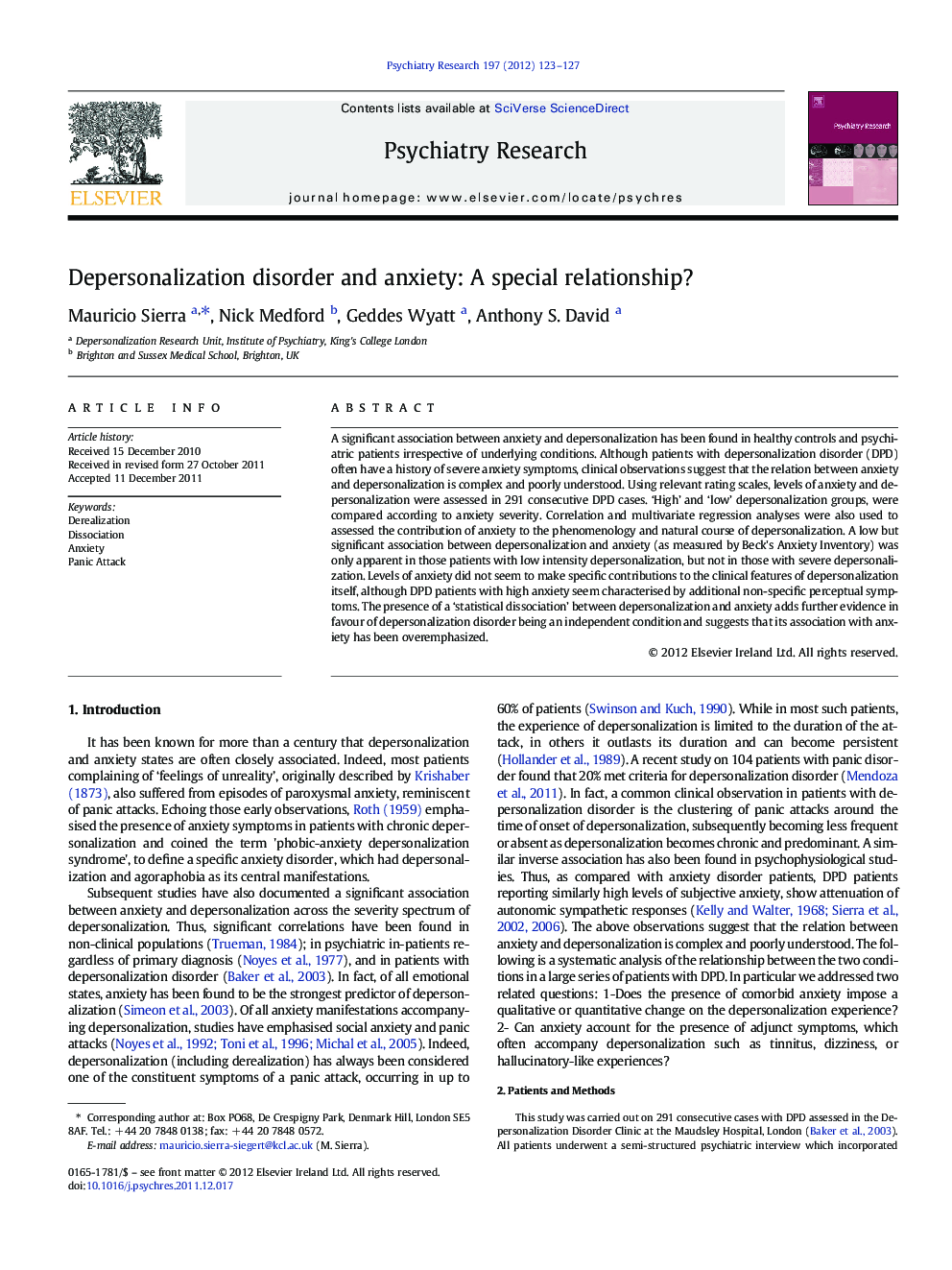| Article ID | Journal | Published Year | Pages | File Type |
|---|---|---|---|---|
| 6815969 | Psychiatry Research | 2012 | 5 Pages |
Abstract
A significant association between anxiety and depersonalization has been found in healthy controls and psychiatric patients irrespective of underlying conditions. Although patients with depersonalization disorder (DPD) often have a history of severe anxiety symptoms, clinical observations suggest that the relation between anxiety and depersonalization is complex and poorly understood. Using relevant rating scales, levels of anxiety and depersonalization were assessed in 291 consecutive DPD cases. 'High' and 'low' depersonalization groups, were compared according to anxiety severity. Correlation and multivariate regression analyses were also used to assessed the contribution of anxiety to the phenomenology and natural course of depersonalization. A low but significant association between depersonalization and anxiety (as measured by Beck's Anxiety Inventory) was only apparent in those patients with low intensity depersonalization, but not in those with severe depersonalization. Levels of anxiety did not seem to make specific contributions to the clinical features of depersonalization itself, although DPD patients with high anxiety seem characterised by additional non-specific perceptual symptoms. The presence of a 'statistical dissociation' between depersonalization and anxiety adds further evidence in favour of depersonalization disorder being an independent condition and suggests that its association with anxiety has been overemphasized.
Related Topics
Life Sciences
Neuroscience
Biological Psychiatry
Authors
Mauricio Sierra, Nick Medford, Geddes Wyatt, Anthony S. David,
